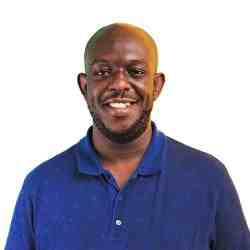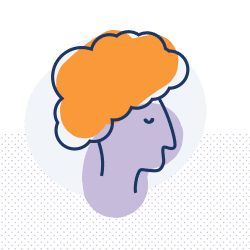Introduction
With an initial focus on the coffee industry, Paul Rice is using Fair Trade to transform global trade practices and ensure that farmers in developing countries earn a fair price for the goods they produce.
The New Idea
After years of helping coffee farmers organize their own marketing cooperatives in Nicaragua and other parts of Latin America, Paul is now closing the loop by persuading such US market leaders as Starbucks and Safeway to carry Fair Trade coffee purchased directly from farmer cooperatives. While products bearing the Fair Trade Certified label may cost a bit more in dollar terms, Paul demonstrates to companies the added value of Fair Trade: consumers will pay slightly more for the Fair Trade guarantee that companies are respecting certain criteria - namely, direct trade, a fair return to farmers, access to credit, and support for sustainable agriculture. In something as simple as a cup of Fair Trade coffee, consumers can vote for a better world and support economic justice and environmental sustainability. For industry, Paul presents Fair Trade USA not as charity, but as a "win-win" approach. He believes that as companies find Fair Trade good for business, they will grow their Fair Trade product lines out of enlightened self-interest, rather than pity for the growers. By educating consumers and building market demand for Fair Trade coffee, Paul helps companies turn social responsibility in the global supply chain into a profitable growth strategy. In addition to helping farmers achieve self-reliance by building consumer and industry demand for Fair Trade in the US, Paul works directly with farmer cooperatives - helping them to organize more effectively, market their products to US companies, and access the credit they need to build individual and cooperative entrepreneurial capacity over the long term.
The Problem
After a decade of working in dozens of grassroots economic development projects in Latin America, Paul became convinced that the dominant model of "international development", based on foreign aid, fundamentally fails to help rural communities build their capacity to solve their own problems; all too often, foreign aid simply makes communities more dependent on foreign aid. Paul now believes that truly sustainable and empowered rural development depends on three crucial ingredients: market access, organizational and management capacity-building, and access to capital. Lack of direct market access, in particular, makes small farmers easy prey to local moneylenders and middlemen, and most development aid focuses on production, rather than market access. Fair Trade addresses all three legs of Paul's "sustainable development stool. "Coffee is the second most heavily traded commodity in the world. Some 30 million people depend on coffee for their livelihood, mostly family farmers cultivating on 20 acres or less. Yet most small farmers lack access to credit and marketing skills, leaving them at the mercy of local middlemen - known in Latin America as "coyotes" - who pay as little as 20 cents per pound of coffee, well below the cost of production. As a result, coffee farmers are losing their land, cutting down neighboring forests, and migrating to overcrowded cities (or to the US) in search of work. With the explosion of the specialty coffee market in the US, gourmet coffee companies are making windfall profits, while small farmers remain in a cycle of poverty and desperation, struggling just to survive. Coffee also has an enormous impact on the environment. More than 27 million acres of land in Latin America, Africa and Asia are devoted to coffee cultivation, much of which overlaps with the world's most endangered ecosystems. The advance of technified, full-sun coffee has led to widespread deforestation and loss of biodiversity in coffee-growing regions. Family farming is an essential defense against this deforestation because small landholders typically grow coffee under the shade of the forest canopy without agrochemicals, a tradition that conserves soils, forests, and wildlife habitat. But when farmers can't earn enough for their harvest to support their families, many are forced to sell their farms, making that land available for deforestation. The best way to protect environmentally sustainable farming is to guarantee farmers market access and a fair price for their product. The Fair Trade market in Europe has been growing steadily for the last decade. Fairtrade Labeling Organizations, the international Fair Trade umbrella group, has implemented global Fair Trade standards for a dozen agricultural commodities. But consumer awareness and demand for Fair Trade products in the US - the world's largest coffee market - have been slower to materialize.
The Strategy
Paul's organization, formerly known as TransFair USA, now Fair Trade USA is building the Fair Trade market and creating a foundation for long-term growth in the US. Fair Trade USA's "push and pull" strategy markets the Fair Trade concept directly to industry while educating consumers to build demand for Fair Trade products. Fair Trade USA forges partnerships with companies and industry trade associations aimed at "pushing" Fair Trade - and establishing Fair Trade as the standard for corporate responsibility in the global coffee industry. The "pull" strategy involves forming strategic alliances with environmental and social justice nonprofits, students' organizations, and faith-based groups to create broad consumer demand for Fair Trade products. The power of this "pull" strategy became clear when major companies like Safeway and Sara Lee decided to launch Fair Trade coffee because "our customers kept asking for it. "Under the auspices of Fairtrade Labeling Organizations, Fair Trade USA has the exclusive right to monitor and certify Fair Trade products in the United States. Fair Trade USA's third-party certification of the entire supply chain ensures that all coffee on café and supermarket shelves bearing the Fair Trade Certified label has been produced and traded according to internationally-accepted Fair Trade standards: direct trade with farmer-owned cooperatives that promote internal democracy and gender equity; a fair return to farmers; access to pre-harvest credit; long-term trading relationships with buyers; and support for sustainable agriculture. While the $1.26 per pound that farmers receive to export Fair Trade coffee is relatively small in US dollars, it makes a life-changing difference for families struggling to survive in the face of the global humanitarian crisis caused by record low coffee prices. Fair Trade farmers typically earn enough to stay on the land, keep their children in school and out of the fields, improve housing and basic health services, upgrade farm infrastructure, and invest in improved coffee quality, which makes them more competitive in the specialty coffee market. Most Fair Trade cooperatives also invest in transitioning to organic coffee; almost 85% of Fair Trade coffee sold in the US is organic and shade-grown. Fair Trade USA also provides direct capacity-building support to farmer cooperatives. Fair Trade USA's producer support programs build farmer capacity to plan effective marketing strategies, improve farmers' understanding of coffee quality and the demands of the US specialty market, and strengthen farmers' direct relationships with Fair Trade importers. Strategies for achieving these goals include trade show participation, US sales and speaking tours (which have the added value of reinforcing regional consumer awareness campaigns through farmer speaking engagements), promotional materials, market information and analysis, and other essential tools to help farmers be more successful in the US market. Paul's work also connects producer groups to other NGOs that provide credit, technical assistance, and management training on the local level. Paul sees market linkage between farmers and US buyers, as well as increased farmer participation in capacity-building activities, as essential to realizing the long-term benefits of Fair Trade. Paul feels it is essential to position Fair Trade coffee strategically within the specialty/gourmet segment of the coffee market, which accounts for almost 40% of market share in the US. He argues that consumers should not have to choose between taste and social responsibility; if Fair Trade coffee tastes great, it will appeal to a much broader consumer market, and more farmers will benefit. Fair Trade USA has therefore targeted the specialty coffee market, and almost all of its industry partners are high-end brands known for their quality. Fair Trade USA also demonstrates the connection to quality by securing the endorsements of high-profile gourmet chefs and food experts. Increasing consumer concern about where food products come from, combined with the growing public demand for corporate social responsibility, create a tremendous opportunity for Fair Trade USA to make a difference. The main challenge now is to build broad consumer awareness and demand to ensure strong sales of Fair Trade coffee. Gradually, Fair Trade USA plans to expand Fair Trade into a broad category of food products such as tea, chocolate, and bananas. Ultimately, Fair Trade's independent certification model may even be relevant for the global garment industry. Since introducing Fair Trade certification to the United States in late 1998, Fair Trade USA has established Fair Trade as the fastest-growing segment in specialty coffee, having a profound impact on the $18 billion US coffee industry. To date, almost 200 coffee companies are licensed to use the Fair Trade Certified label on their sustainable products. Millions of consumers now have access to Fair Trade coffee for the first time. Starbucks launched its Fair Trade Blend in twenty-three hundred stores nationwide in October 2000, while Green Mountain Coffee Roasters is offering organic fair trade coffees in three hundred New England supermarkets and twelve hundred Exxon/Mobil convenience stores. Safeway has introduced organic Fair Trade coffees into all of its sixteen hundred supermarkets nationwide. Distribution has thus leaped from a few hundred stores in late 1998 to over twelve thousand stores today. In terms of overall impact, Paul's key task for the future is to bring Fair Trade into the mainstream, so that companies see Fair Trade as contributing to their bottom line both by satisfying consumers and building the brand's reputation.
The Person
Paul comes from a southern family of humble origins and strong convictions. His mother was a farmer's daughter who raised him with a sense of pride, compassion, and sympathy for poor folk. As a kid, Paul developed a deep sense of outrage at social and racial injustice, which has been a guiding force in his life. Paul also learned early on the value of hard work by selling newspapers, mowing lawns, and gardening. By saving his earnings, he was able to self-finance much of his college tuition. At Yale, Paul studied political science and economics, which awakened in him an intense concern for the issues of global hunger, poverty, and rural underdevelopment. As a result, Paul became increasingly interested in sustainable agriculture, cooperatives, and the challenges of rural economic development. At the age of nineteen, Paul took a year off from school and went to China to learn about land reform and the peasants' struggle to organize cooperatives. This experience cemented his decision to enter the field of international development. In 1983, fresh out of college, Paul went to Nicaragua to work with farmers and cooperatives, thinking he would stay for a year. As it turned out, he lived in Nicaragua for 11 years, becoming a specialist in rural economic and cooperative development. Paul's work in the mountainous war zones during the 1980's put him in harm's way, and many of his friends and colleagues were killed during the Contra war. The memory and example of those friends continue to inspire his work today.In 1990, Paul founded PRODECOOP, a consortium of fifty-two grassroots cooperatives representing almost three thousand small coffee farmers and their families in northern Nicaragua. Serving as CEO for four years, he led PRODECOOP to become one of the largest organic coffee exporters in the world, a venture that delivered substantial economic and social benefits back to its members. Fair Trade was an integral part of PRODECOOP's success. This approach proved effective at empowering farmers to develop their own organizational and entrepreneurial capacities, bootstrap their co-ops, and raise their families' living standards - without developing a dependency on foreign aid. Paul eventually worked himself out of the CEO position by building internal leadership. The co-op's next CEO was a woman that Paul helped train, and was the first woman to lead a coffee company in the male-dominated Nicaraguan coffee industry. In 1994, Paul returned to the United States to pursue a Master's of Business Administration at UC Berkeley, seeking the "practical tools" he needed to better prepare him for his work with cooperatives. After graduating in 1996, he started a nonprofit consulting firm that advised twenty-two cooperative ventures in Latin America and Asia over a three-year period. During this period Paul wrote the business plan for Fair Trade USA and in 1998 launched the organization and became its first Executive Director.




